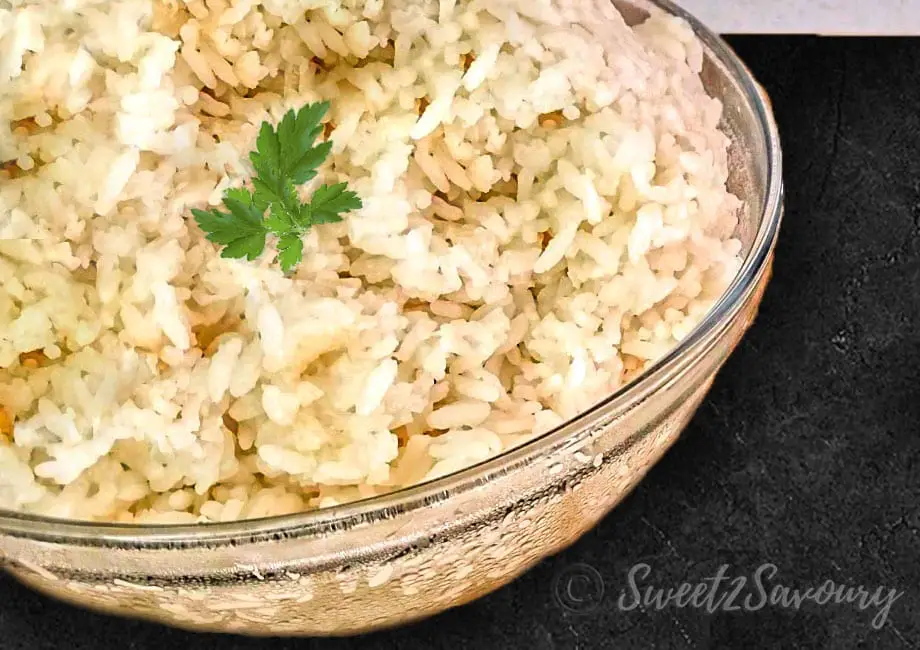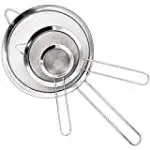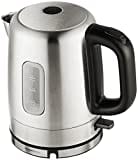847 Rice packed with flavour! Just replace water with your favourite stock! Enjoy as a side dish or as a main course. Try it in a fried rice such as my Bacon & Sausage Fried Rice recipe. I grew up on rice. In our vietnamese culture, it’s a staple in a lot of our meals whether in the form of grain, noodles or dumplings. It’s a go to starch that a lot of people enjoy (and as I later learned in life, gluten free #winning!) Back in germany, my grandparents were mine and my sibling’s part-time guardians while our parents went to work. My grandma cooked delicious authentic vietnamese food that, of course, was accompanied with rice. Each time my siblings and I were almost done eating our meal, she would check our bowls and say in her soft spoken grandma voice: “Eat everything including the last grain of rice in your bowl, sweetie. Do not waste it. That grain of rice was harvested with hard labour by many people who cannot afford to eat well like you.” Young me did not fully understand what she meant by that, however, later in my teens, I understood what it meant not to take anything for granted. Especially when it comes to food. Print Pin Rate  Get Recipe Ingredients
Get Recipe Ingredients
*Good To Know*
- What kind of rice is sushi rice? It’s a short grain that is the main ingredient typically used to make any type of sushi rolls. It can also be consumed on its own but is more popular in sushi. The texture is starchy and sticky when cooked.
- Is there a difference between sushi and jasmine rice? Yes there is. Jasmine is less sticky (more dry) and less flavourful than sushi rice. Depending on what dish you’re making, using one type of grain over the other does need to be considered. For example, if you were to make sushi at home, using jasmine rice won’t work as well because it will not roll or stick properly like sushi rice would.
- Why cook it in stock instead of water? I like to think outside the box sometimes and come up with ways to make something more flavourful. Cooking rice (whether it’s sushi or other type of rice) with beef stock or any of my favourite stocks instead of water is one way i like to pack in the flavour without having to dress it up with extra, runny sauce.
- If I use this flavoured sushi rice to substitute in other recipes, how should I cook it? I cooked the rice with one 1 cup less stock than what the instructions call for. This is to compensate for the extra liquid / sauce added in a dish, such as fried rice for instance. For example, if the recommended cooking instruction calls for 1½ cups water for 1 cup uncooked rice, only use 1/2 cup water for 1 cup uncooked rice. This ensures your rice cooks a little on the dry side and when added to saucy recipes it will absorb some of the liquid in your dish and cook the rice to perfect texture. The same method applies to other types of rice such as jasmine. Now, this is only a suggestion and would depend on the dish you’re making as well depend on your preference. If you’re making gumbo or jambalaya and prefer the rice to be softer, proceed as normal or skip cooking it in stock altogether.
So why cook sushi rice in stock? Honestly, this was #quarantinecooking. We ran out of jasmine rice and only had sushi rice left. Some traditionalists might frown upon this method but I say, use what you have! There are various methods to cook sushi rice some cook it with water, oil and vinegar, others just with water. Regardless what your preferred method is, I decided to cook this rice for my Bacon & Sausage Fried Rice dish. However you can use is as a flavoured substitute for many other sides or dishes that call for rice. Use any stock you like such as Beef, Chicken, Pork or vegetable.
I used my rice cooker to make the rice with the stock. It’s easy and cooks perfect every time. If you choose to cook it in a saucepan, remember that stock will have some salt content in it, which might cause your rice to stick (or burn) more easily in the pan. To avoid that, remember to use a non-stick saucepan and to turn your heat down low and let it simmer until all of the liquid has cooked into the rice.
Easy Stock Seasoned Sushi Rice
Add more flavour to your rice routine! Just replace water with your favourite stock!
No ratings yet
Prep Time: 5 minutes minutes
Cook Time: 20 minutes minutes
Total Time: 25 minutes minutes
Yields: 4
Ingredients
- 2 cups uncooked sushi rice
- 3 cups beef stock, low sodium
COOK MODE – Prevent your screen from going dark
INSTRUCTIONS
Using Rice Cooker
- Pour rice into mesh strainer and rinse under cold water for 2 minutes until starchy water from washed rice runs clear.
- Add rice and beef stock to the bowl of a rice cooker, turn rice cooker on and let cook according to the manual instructions. Fluff rice with a fork.
Using Saucepan
- Bring stock to a boil in saucepan (or use a hot water kettle to heat water and combine bouillon with hot water before bringing to a boil in saucepan). Add Rice, stir and reduce heat to low. Cover and cook for 20 minutes. All of the stock should be absorbed and rice should be tender. Uncover and fluff rice with a fork.
Category: Side Dish
Keyword: rice, side dish, stock
Tips
What kind of rice is sushi rice?
It’s a short grain that is the main ingredient typically used to make any type of sushi rolls. It can also be consumed on its own but is more popular in sushi. The texture is starchy and sticky when cooked.
Is there a difference between sushi and jasmine rice?
Yes there is. Jasmine is less sticky (more dry) and less flavourful than sushi rice. Depending on what dish you’re making, using one type of grain over the other does need to be considered. For example, if you were to make sushi at home, using jasmine rice won’t work as well because it will not roll or stick properly like sushi rice would.
Why cook it in stock instead of water?
I like to think outside the box sometimes and come up with ways to make something more flavourful. Cooking rice (whether it’s sushi or other type of rice) with beef stock or any of my favourite stocks instead of water is one way i like to pack in the flavour without having to dress it up with extra, runny sauce.
If I use this flavoured sushi rice to substitute in other recipes, how should I cook it?
I cooked the rice with one 1 cup less stock than what the instructions call for. This is to compensate for the extra liquid / sauce added in a dish, such as fried rice for instance.
For example, if the recommended cooking instruction calls for 1½ cups water for 1 cup uncooked rice, only use 1/2 cup water for 1 cup uncooked rice. This ensures your rice cooks a little on the dry side and when added to saucy recipes it will absorb some of the liquid in your dish and cook the rice to perfect texture. The same method applies to other types of rice such as jasmine. Now, this is only a suggestion and would depend on the dish you’re making as well depend on your preference. If you’re making gumbo or jambalaya and prefer the rice to be softer, proceed as normal or skip cooking it in stock altogether.
It’s a short grain that is the main ingredient typically used to make any type of sushi rolls. It can also be consumed on its own but is more popular in sushi. The texture is starchy and sticky when cooked.
Is there a difference between sushi and jasmine rice?
Yes there is. Jasmine is less sticky (more dry) and less flavourful than sushi rice. Depending on what dish you’re making, using one type of grain over the other does need to be considered. For example, if you were to make sushi at home, using jasmine rice won’t work as well because it will not roll or stick properly like sushi rice would.
Why cook it in stock instead of water?
I like to think outside the box sometimes and come up with ways to make something more flavourful. Cooking rice (whether it’s sushi or other type of rice) with beef stock or any of my favourite stocks instead of water is one way i like to pack in the flavour without having to dress it up with extra, runny sauce.
If I use this flavoured sushi rice to substitute in other recipes, how should I cook it?
I cooked the rice with one 1 cup less stock than what the instructions call for. This is to compensate for the extra liquid / sauce added in a dish, such as fried rice for instance.
For example, if the recommended cooking instruction calls for 1½ cups water for 1 cup uncooked rice, only use 1/2 cup water for 1 cup uncooked rice. This ensures your rice cooks a little on the dry side and when added to saucy recipes it will absorb some of the liquid in your dish and cook the rice to perfect texture. The same method applies to other types of rice such as jasmine. Now, this is only a suggestion and would depend on the dish you’re making as well depend on your preference. If you’re making gumbo or jambalaya and prefer the rice to be softer, proceed as normal or skip cooking it in stock altogether.
Your Own Digital Notes
Nutrition Facts
Easy Stock Seasoned Sushi Rice
Amount per Serving
Calories
366
% Daily Value*
Fat
1
g
2
%
Saturated Fat
1
g
6
%
Sodium
363
mg
16
%
Potassium
404
mg
12
%
Carbohydrates
78
g
26
%
Fiber
3
g
13
%
Sugar
1
g
1
%
Protein
10
g
20
%
Calcium
25
mg
3
%
Iron
2
mg
11
%
* Percent Daily Values are based on a 2000 calorie diet.
Did you make this? I would love to see your creation!Tag me @sweet2savoury on Instagram and hashtag it #sweet2savoury







